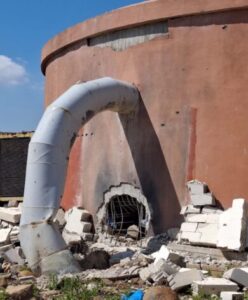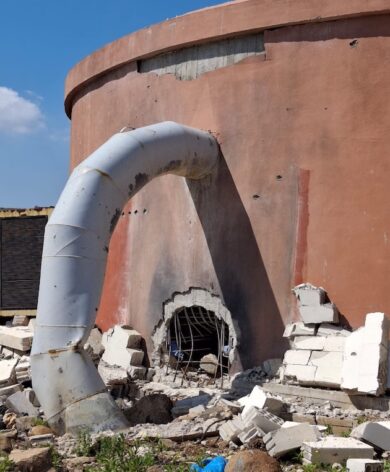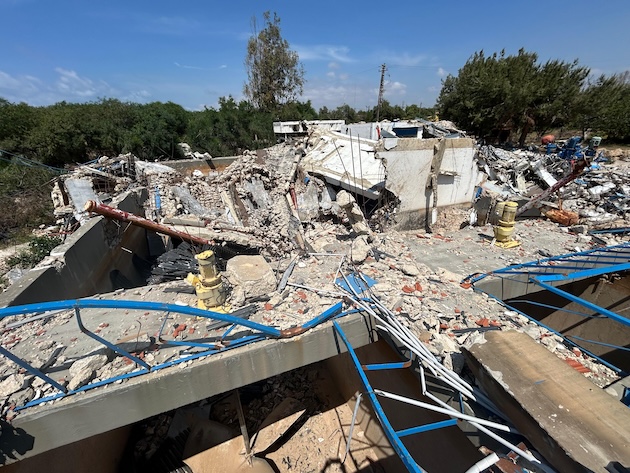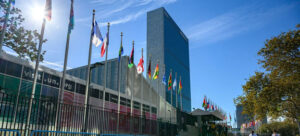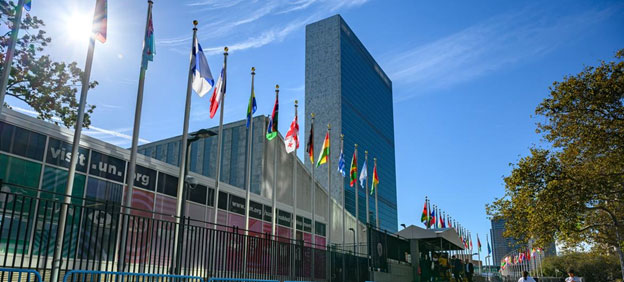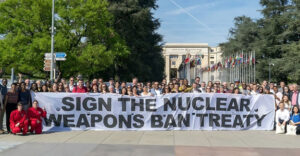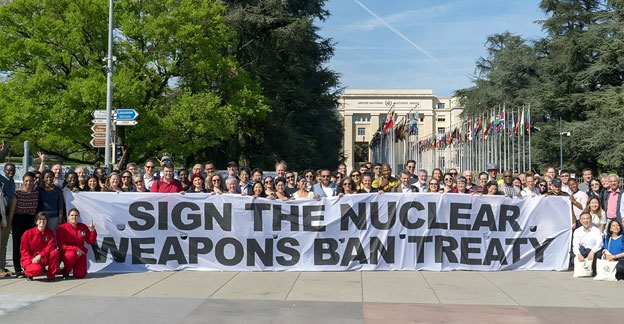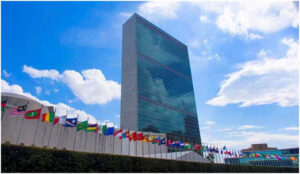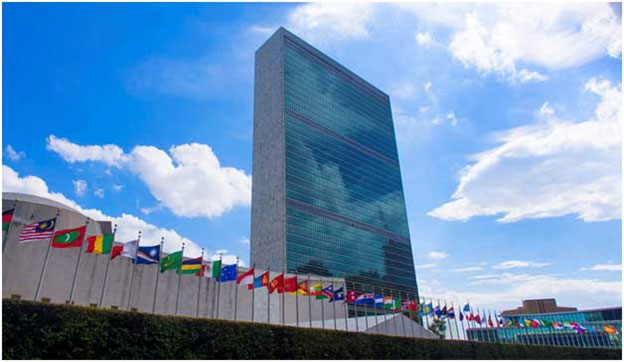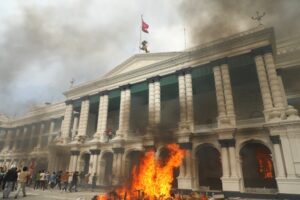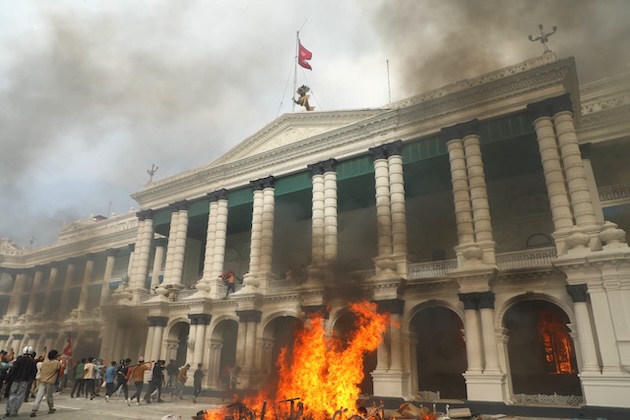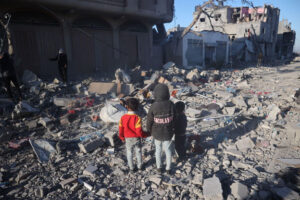
Armed Conflicts, Civil Society, Crime & Justice, Headlines, Health, Human Rights, Humanitarian Emergencies, Middle East & North Africa, Migration & Refugees, TerraViva United Nations
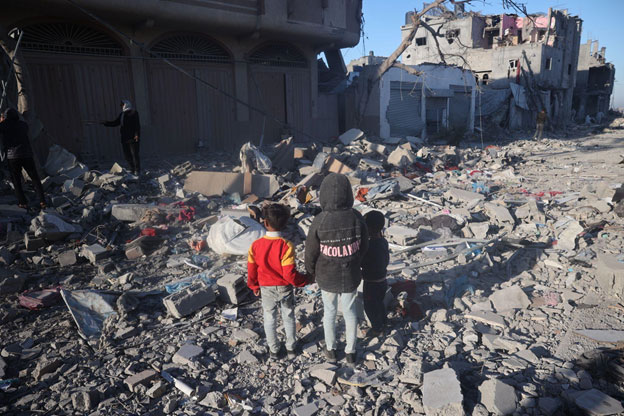
Gazan children standing in the rubble of their demolished home in Rafah. Credit: UNICEF/Eyad El Baba
– On September 16, the Israeli military began its ground offensive in Gaza City, accompanied by intensified bombardment of residential areas and a surge in civilian displacement. Concurrently, the United Nations Independent International Commission of Inquiry on the Occupied Palestinian Territory, including East Jerusalem and Israel, issued a report in which it found that Israel is responsible for committing genocide in Gaza, citing deliberate efforts to destroy Palestinian life, carried out with near-total impunity.
“The responsibility for these atrocity crimes lies with Israeli authorities at the highest echelons who have orchestrated a genocidal campaign for almost two years now with the specific intent to destroy the Palestinian group in Gaza,” said Navi Pillay, Chair of the Commission. “The Commission also finds that Israel has failed to prevent and punish the commission of genocide through failure to investigate genocidal acts and to prosecute alleged perpetrators.”
The Commission found that Israeli forces have repeatedly disregarded orders from the International Court of Justice (ICJ) as well as warnings from UN Member States, human rights groups and civil society organizations. Israeli officials have dismissed the Commission’s findings, accusing it of bias and refusing to cooperate with its investigations.
In response to the Commission, Israeli President Isaac Herzog told journalists, “While Israel defends its people and seeks the return of hostages, this morally bankrupt Commission obsesses over blaming the Jewish state, whitewashing Hamas’s atrocities, and turning victims of one of the worst massacres of modern times into the accused.”
The Commission described its report as the “strongest and most authoritative UN finding to date”, while noting that it operates independently from the UN and does not speak on its behalf. Currently, the UN does not categorize Israel’s actions in Gaza as a genocide, but has been under increasing pressure from its agencies to do so. Back in August, over 500 staff from the Office of the High Commissioner for Human Rights (OHCHR) urged UN Human Rights Chief Volker Türk to explicitly recognize the situation as a genocide. “OHCHR has a strong legal and moral responsibility to denounce acts of genocide,” said the letter signed by the UNHCR Staff Committee in Geneva. “Failing to denounce an unfolding genocide undermines the credibility of the U.N. and the human rights system itself.”
Humanitarian experts project that ongoing bombardments will result in an immense loss of human life and eliminate the remaining prospects of survival for those still in the enclave. The UN Human Rights Council (HCR) noted that controlled detonations in Gaza City have leveled entire neighborhoods and are in the process of wiping out “the last viable element of civilian infrastructure’ essential for survival.
The Commission reports that since October 7, 2023, Israel has repeatedly bombarded densely populated residential areas, often relying on explosive weapons with wide-area impacts. One spokesperson for the Israeli security forces told the Commission that they were “focused on what causes maximum damage”. The Commission has documented numerous instances of Israeli forces targeting high-rise buildings and residential apartment blocks, leading to the destruction of entire neighborhoods and the deaths of almost all civilians involved.
Additionally, the Commission observed that the number of bombs used by Israel in the past two years is unprecedented in comparison to other world conflicts, noting that Israel drops in less than a week the number of bombs the United States used in Afghanistan over an entire year —concentrated in a much smaller and more densely populated area.
Airstrikes and shellings on critical civilian infrastructures have disrupted nearly all aspects of life for Palestinians in Gaza. According to the report, damage to agricultural lands across the entire enclave poses significant long-term risks to food production and accelerated food insecurity, leading to famine.
As of February 2025, 403 school buildings in Gaza have been damaged by Israeli bombardment, including eighty-five that have been completely destroyed and seventy-three left only partly functional. The Commission warns that the strikes have effectively collapsed Gaza’s education system, disrupting schooling for over 658,000 children. Without urgent intervention, thousands are expected to suffer long-term psychological harm and stunted cognitive development due to the loss of education and psychosocial support services.
Furthermore, the widespread destruction of hospitals and the immense number of traumatic injuries from Israeli attacks have overwhelmed hospitals and healthcare centers across Gaza, leading to the collapse of the healthcare system. The siege has led to severe shortages in fuel and electricity, while also causing the looting and damaging of life-saving medical supplies and medications. As a result, patients with chronic illnesses and infections from diseases have been deprioritized, leading to a sharp increase in the number of preventable deaths and complications. Medical experts told the Commission that the targeting of healthcare facilities has severely restricted access to care for thousands of Palestinians, with children being among the most affected.
According to the report, between October 2023 and July 2025, approximately 53,000 Palestinians in Gaza were killed as a direct result of Israeli military operations. The Commission reports that Palestinians in Gaza were also attacked in their homes, in hospitals, as well as shelters, such as schools and religious sites. Israeli forces also repeatedly targeted journalists, healthcare personnel, humanitarian workers, and other protected individuals, sometimes even during ceasefire periods and without warning.
The report also documents Israeli forces targeting Palestinians in evacuation routes and designated safe zones, finding that women and children were most often directly targeted and killed, often while alone and in areas not experiencing active hostilities. In every case reviewed, the Commission found that Israeli forces were aware of civilians’ presence but opened fire regardless. Many of the victims were children carrying makeshift white flags , including toddlers who were reportedly shot in the head by snipers.
Furthermore, the report underscores that the Gaza Humanitarian Foundation (GHF) was largely ineffective in providing direct relief to struggling Palestinians and has been linked to a surge in civilian deaths. As of July 31, at least 1,373 Palestinians had been killed while trying to access food, with 859 killed near GHF sites and 514 along convoy routes—with most fatalities attributed to the Israeli military.
Furthermore, Israeli forces have effectively hindered humanitarian operations through routine bombardments and shellings. From October 2023 to July 2025, the Commission recorded at least 48 staff and volunteers from the Palestine Red Crescent Society (PRCS) that were killed. Additionally, medical personnel also informed the Commission that Israeli forces deliberately shelled ambulances, with many workers stating that they believed that they had been intentionally targeted.
The Commission also found that Israel weaponised the withholding of life-sustaining necessities, such as food, water, fuel, and humanitarian aid, leading to a sharp increase in preventable civilian deaths. According to the report, families in Gaza have less than one liter of water per person per day for drinking, cooking, and hygiene, which is far below international minimum standards for daily water consumption.
Moreover, water shortages have led to a deterioration of the sanitation system, which is particularly pronounced in displacement camps, where nearly 400,000 kilograms of waste piles up each day. This has led to the rampant spread of infectious diseases such as Hepatitis A.
Additionally, more than ninety percent of the population in Gaza has faced acute food insecurity since October 2023, with the most severe cases being concentrated in northern Gaza. According to figures from the Integrated Food Security Phase Classification (IPC), as of July 2025, food consumption has fallen far below the famine threshold in most areas of the enclave and malnutrition has reached the famine threshold in Gaza City.
The report found that Israeli forces were responsible for deliberately starving and depriving civilians in Gaza of resources that are paramount for human survival, with PRCS stating that Gaza is “unable to sustain life in its current state as civilians find their basic needs unmet”.
The Commission warns that the near-total impunity that Israeli forces and officials have emboldened the continuation of atrocities in Gaza, with global pressure mounting from the international community which urgently calls for an immediate de-escalation of hostilities, unimpeded humanitarian access, and credible mechanisms to hold perpetrators accountable.
“The international community cannot stay silent on the genocidal campaign launched by Israel against the Palestinian people in Gaza. When clear signs and evidence of genocide emerge, the absence of action to stop it amounts to complicity,” said Pillay. “Every day of inaction costs lives and erodes the credibility of the international community. All States are under a legal obligation to use all means that are reasonably available to them to stop the genocide in Gaza,” she added.
Following the report’s release, the leaders of twenty aid agencies working in Gaza, including Oxfam International, CARE and Médecins Sans Frontières (MSF), issued a joint statement also urging member states to take action to “prevent the evisceration of life in the Gaza Strip”.
“All parties must disavow violence against civilians, adhere to international humanitarian law and pursue peace. States must use every available political, economic, and legal tool at their disposal to intervene. Rhetoric and half measures are not enough. This moment demands decisive action,” the statement reads.
“The UN enshrined international law as the cornerstone of global peace and security. If Member States continue to treat these legal obligations as optional, they are not only complicit but are setting a dangerous precedent for the future. History will undoubtedly judge this moment as a test of humanity. And we are failing. Failing the people of Gaza, failing the hostages, and failing our own collective moral imperative.”
IPS UN Bureau Report

